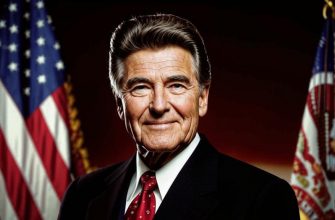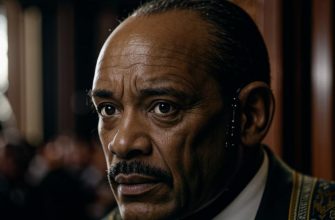Films about media bias delve into the profound and often unsettling ways in which media, in its various forms, can shape public perception, influence politics, and distort reality. These films range from sharp satires and dramatic thrillers to insightful documentaries, each exploring the consequences of media manipulation, the consolidation of media power, and the ethical quandaries faced by journalists and media moguls alike. They reveal how selective coverage, sensationalism, and corporate interests can skew the information reaching the public, ultimately affecting democracy and societal beliefs.
“Wag the Dog”, 1997
Director: Barry Levinson

A black comedy about a spin doctor and a Hollywood producer who join forces to fabricate a war in order to distract the electorate from a presidential sex scandal. This film explores the concept of media manipulation and the creation of false narratives to influence public opinion.
Starring: Dustin Hoffman, Robert De Niro, Anne Heche, Woody Harrelson, Denis Leary, Willie Nelson, Andrea Martin, Michael Belson, Suzanne Cryer, John Michael Higgins;
Production year: 1997;
Genre: drama, comedy;
MPAA rating: r;
Duration: 97 min.;
Rating: IMDB: 7,1;
More information about the film “Wag the Dog” on the website imdb.com
“The Insider”, 1999
Director: Michael Mann

This film is based on the true story of a whistleblower in the tobacco industry and a producer for the CBS news show “60 Minutes.” It addresses the ethical dilemmas faced by journalists and the pressures from corporate interests that can lead to significant media bias and censorship.
Starring: Al Pacino, Russell Crowe, Christopher Plummer, Diane Venora, Philip Baker Hall, Lindsay Crouse, Debi Mazar, Stephen Tobolowsky, Colm Feore, Bruce McGill;
Production year: 1999;
Genre: thriller, drama, biography;
MPAA rating: r;
Duration: 157 min.;
Rating: IMDB: 7,8;
More information about the film “The Insider” on the website imdb.com
“Frost/Nixon”, 2008
Director: Ron Howard
A historical drama based on the legendary series of televised interviews in 1977 between British talk-show host David Frost and former President Richard Nixon. The film depicts how media, with the right questioning, can elicit truth and influence public perception of political figures.
Starring: Frank Langella, Michael Sheen, Sam Rockwell, Kevin Bacon, Matthew Macfadyen, Oliver Platt, Rebecca Hall, Toby Jones, Andy Milder, Kate Jennings Grant;
Production year: 2008;
Genre: drama, biography, history;
MPAA rating: r;
Duration: 122 min.;
Rating: IMDB: 7,7;
“Spotlight”, 2015
Director: Tom McCarthy
This film follows the true story of The Boston Globe's “Spotlight” team, the oldest continuously operating newspaper investigative journalist unit in the United States, and its investigation into cases of widespread and systemic child sex abuse in the Boston area by numerous Roman Catholic priests. It is a powerful examination of investigative journalism and its impact on public awareness and institutional accountability.
Starring: Mark Ruffalo, Michael Keaton, Rachel McAdams, Liev Schreiber, John Slattery, Stanley Tucci, Brian d'Arcy James, Elena Wohl, Gene Amoroso, Doug Murray;
Production year: 2015;
Genre: drama, crime, biography;
MPAA rating: r;
Duration: 129 min.;
Rating: IMDB: 8,1;
“The Post”, 2017
Director: Steven Spielberg

Depicting the true story of The Washington Post's decision to publish the Pentagon Papers, classified documents regarding the 20-year involvement of the United States government in the Vietnam War, this film illustrates the crucial role of the free press in exposing government lies and informing the public, despite intense opposition and attempts at censorship.
Starring: Meryl Streep, Tom Hanks, Sarah Paulson, Bob Odenkirk, Tracy Letts, Bradley Whitford, Bruce Greenwood, Matthew Rhys, Alison Brie, Carrie Coon;
Production year: 2017;
Genre: thriller, drama, biography, history;
MPAA rating: pg13;
Duration: 116 min.;
Rating: IMDB: 7,2;
More information about the film “The Post” on the website imdb.com
In conclusion, films about media bias serve not only as captivating mirrors reflecting the complex dynamics of information dissemination but also as tools for societal introspection and critique. Through nuanced storytelling, compelling character arcs, and evocative visuals, these films challenge audiences to question the veracity of the information they consume and the integrity of those who deliver it. From the dramatized corridors of power in “All the President's Men” to the satirical sharpness of “Network,” and the chilling prophecy of “The Truman Show,” cinema offers a rich tapestry of narratives that uncover the multifaceted nature of media influence. As we navigate an era where the lines between fact and fiction blur with increasing ease, films about media bias become ever more essential. They not only entertain but educate and empower viewers, encouraging a critical eye towards the sources that shape their understanding of the world.











